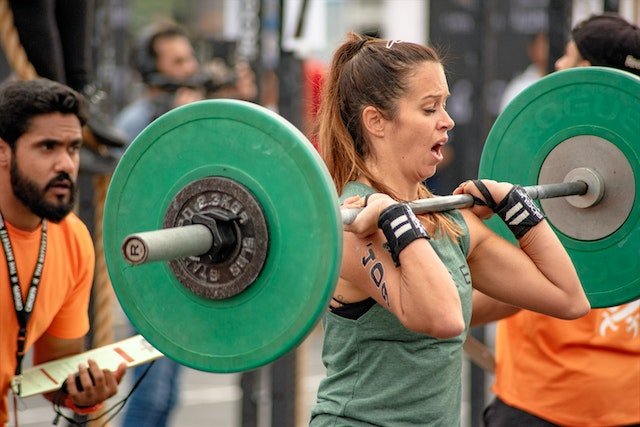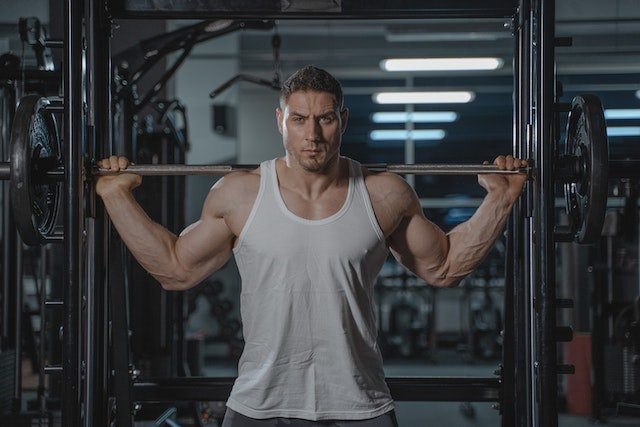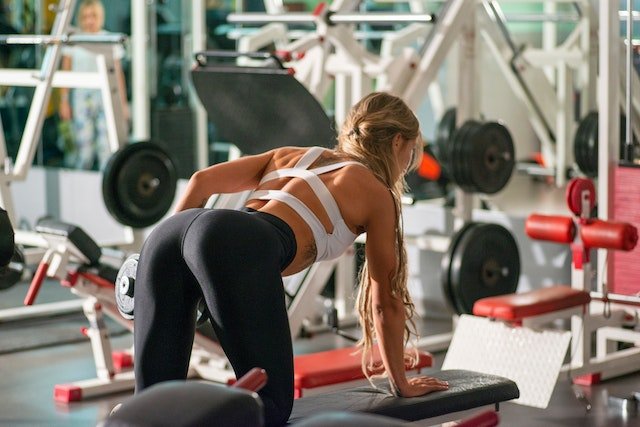Why Are Squats So Tiring? 15 Crucial Things To Consider For Better Results
Squats are one of, if not the most demanding compound exercises there is.
They are great for building power, strength and size in your legs but they come at a price.
They take up a tremendous amount of energy when doing them, which leads lots of people to ask “why are squats so tiring?”
Squats are incredibly challenging, not just physically but also mentally.
There are a few key reasons why squats are so tiring.
Why Are Squats So Tiring?
There are a few reasons why squats may be tiring for some people. First, the squat is a compound exercise, meaning it works multiple muscle groups at once. This can fatigue the muscles more quickly than isolation exercises that only work one muscle group at a time. Second, the squat is a weight-bearing exercise, which means that the body must work against gravity to lift the weight. This can also lead to fatigue more quickly. One other thing you need to consider is your breathing, naturally when we exert a lot of energy doing something we hold our breath to get the job done. Doing this with squats or any other exercise will tire you out and fast, and make sure you are taking longer rests between sets to recover also. Finally, squats involve a large range of motion, which can also lead to muscular fatigue.
Compound movement
The squat is a compound, multi-joint exercise that works several muscle groups in your lower body including the quads, glutes, hamstrings, and calves.
It also works your core muscles, including the abdominal and lower back muscles, as well as the muscles in your upper body, such as the shoulders, chest, and arms.
Compound movements use up a large amount of energy, so it’s perfectly normal to feel tired after doing squats, it just depends on what degree of tiredness you are.
Some consider compound movements to be as strenuous as a heavy cardio session, and this can be true if you are squatting with a lot of weight.
Another reason the squat may be tiring is because it is a weight-bearing exercise, which means that the body must work against gravity to lift the weight.
This can put a lot of strain on your muscles, and can also lead to fatigue more quickly.
Lifting heavy is very demanding
When you squat, not only are you working the muscles in your legs, but you’re also working your core muscles to stabilize your spine and pelvis, and your upper body muscles to help keep the barbell in place.
So when you’re doing a heavy set of squats, you’re really taxing your central nervous system (CNS) and your entire body.
This can lead to fatigue more quickly than if you were just working one muscle group at a time.
When exerting large amounts of energy all at once, especially to lift a heavy weight it will cause your body to release the stress hormone cortisol.
Cortisol is a catabolic hormone that can break down muscle tissue and lead to fatigue.
People have been known to vomit during or after squats, this is because a large amount of energy required to perform the exercise along with the release of cortisol can lead to an increase in stomach acid.
While this is rare, it is something to be aware of if you start feeling nauseous during or after a set of squats.
It’s also important to note that when we squat, our breathing patterns change.
Normally, when we breathe, our breaths are regular and rhythmic.
However, when we squat (or do any type of strenuous activity), we tend to hold our breath.
Your breathing plays an important role in how tired you get
Another thing to consider is your breathing. When we exert ourselves physically, it’s natural to hold our breath.
But this actually makes the exercise more difficult and can lead to fatigue sooner.
Try to exhale on the effort (as you’re squatting down) and inhale on the way up. This will help you stay more relaxed and decrease the chance of getting too tired too quickly.
When you hold your breath (a process called the valsalva maneuver), you increase intra-abdominal pressure, which can lead to a number of problems, including:
- A hernia
- High blood pressure
- Lightheadedness
Additionally, holding your breath while squatting can make the exercise feel harder than it actually is. If you find yourself holding your breath during squats, make a conscious effort to breathe evenly and deeply.
The large range of motion required for squats can also lead to muscular fatigue. When muscles are used over a large range of motion, they have to work harder to generate the same amount of force.
This is why you may feel more fatigue when doing full squats than partial squats (squats that don’t go all the way down).
If you’re new to squatting, start with a lighter weight and focus on getting the full range of motion. As you get stronger, you can increase the weight and do partial squats.
Are you going to failure?
Another factor that can influence how tired you feel after squats is how close you are to failure.
If you’re squatting with a weight that’s close to your one-rep max (the heaviest weight you can lift for one rep), you’ll likely feel more fatigue than if you’re squatting with a lighter weight.
This is because your body has to recruit more muscle fibres to lift the heavy weight, which can lead to fatigue more quickly.
Of course, going to failure is a matter of personal preference. Some people like to squat with a heavy weight and push themselves to failure, while others prefer to stop a few reps shy of failure.
As mentioned above, if you’re new to squatting, a lighter weight is usually a good place to start.

Are they new to you?
If you’re new to squats (or lifting in general), it’s completely normal to feel more fatigue than someone who’s been doing it for a while.
This is because your muscles are not used to the demands of squatting and need time to adapt.
As your muscles become more accustomed to the exercise, you’ll likely find that you can do more reps with less fatigue.
Additionally, if you’re new to lifting, your form may not be perfect. This can also lead to more fatigue, as your muscles have to work harder to stabilize the weight.
If you’re new to squats, focus on perfecting your form and as you get stronger and more comfortable with the exercise, you can start to increase the weight and intensity.
Related: How Do I Make Leg Day More Bearable?
Orthostatic hypotension
Orthostatic hypotension is a condition in which your blood pressure drops when you stand up from a squatting position.
This can cause lightheadedness and fatigue.
If you have orthostatic hypotension, be sure to stand up slowly from a squatting position to avoid dizziness and fatigue.
You can also try squatting with your feet shoulder-width apart and your toes pointing out slightly to help improve blood flow and decrease orthostatic hypotension.
If you have any other medical conditions that may be affecting how tired you get after squats, be sure to speak with your doctor before beginning any new exercise routine.
While squats are a great exercise for building strength and muscle, they can also be tiring.
There are a number of factors that can contribute to this fatigue, including the type of squat, how heavy the weight is, and how close you are to failure.
Are you hydrated?
If you’re not properly hydrated, you may start to feel fatigued more quickly when doing squats (or any other type of exercise).
Be sure to drink plenty of water before and during your workout to stay hydrated.
You can also try adding an electrolyte-rich drink to your pre-workout routine to help keep your energy levels up and ward off fatigue.
The average person should drink eight 8-ounce glasses of water per day. However, you may need more or less depending on your activity level, sweat rate, and other factors.
Having around 200–300 milligrams of caffeine before a workout can also help to improve your performance and decrease fatigue.
If you’re new to caffeine, start with a lower dose to see how your body reacts. Just be warned that caffeine can cause side effects like jitters, anxiety, and increased heart rate.
Also, consider taking a pre-workout suppliment to help increase your energy levels and endurance. Although these might not be for everyone, see what works for you.
Are you fuelling workouts
In order to properly recover from a heavy squat session, it’s important to eat foods that will help to reduce cortisol levels and promote muscle growth.
Some good options include:
- Eggs
- Oatmeal
- Salmon
- Nuts and seeds
- Greek yoghurt
- Berries
While squats are definitely a challenging exercise, they offer a lot of benefits including increased strength, muscle growth, and improved athleticism.
If you’re finding them too challenging or tiring, make sure to focus on proper form, use a lighter weight, and take longer breaks between sets. And don’t forget to refuel with the right foods after your workout!
Lifting too heavy?
If you’re lifting a weight that’s too heavy for your current strength level, you’re likely to feel more fatigue.
Lifting a weight that’s too heavy can also lead to poor form, which can put unnecessary stress on your joints and muscles and increase the risk of injury.
Having good form is crucial to improving all aspects of your squat, so be sure to focus on that before increasing the weight.
You can also do more reps with a lighter weight to help build strength and endurance. This will also put less stress on your joints and muscles and help to prevent injury.
If you’re unsure of how much weight to lift, start light and gradually increase the amount as you get stronger.
We have all seen those people down the gym who, for some reason decide to lift ridiculously heavy weights, often with poor form.
This might impress some people (not many truth be told) but all it’s really doing is putting their bodies under unnecessary stress.
Don’t fall victim to this philosophy, stick to manageable goals for consistent progress, good form and you will see better results in the long term.
Having a workout partner, personal trainer or spotters can also help ensure good form and prevent injury.
Too much volume?
If you’re doing too many reps or sets, this can also lead to fatigue.
While it’s important to challenge your muscles, doing too much can lead to overtraining, which can decrease performance and lead to injuries.
Be sure to take adequate rest days and ease into new workout routines to avoid overtraining.
Exhaustion is a real thing and happens to the best of us, especially when we are just starting out with a new exercise routine or when we pushing ourselves too hard.
It is important to understand our limits and not try to do too much too soon, this can only lead to disappointment and often injury.
Listening to your body is also important. If you’re feeling excessively tired, sore, or like you’re getting sick, it’s probably a good idea to take a day or two off from the gym.

Not allowing enough rest between sets?
If you’re not giving yourself enough time to rest between sets, your muscles won’t have enough time to recover and this can lead to fatigue.
How much rest you need will depend on the intensity of your workout, but generally speaking, you should rest for 1-2 minutes between sets of squats.
Some fitness professionals would say to rest even longer, once again see how you feel and do what works for you.
If you’re doing a more intense workout with a lighter weight, such as HIIT, you might need to rest for 3-5 minutes between sets.
Remember, the goal is to challenge your muscles, not exhaust them. So be sure to give yourself enough time to recover between sets.
Heart rate
When doing strenuous lifting our heart rate will naturally increase as our bodies work harder to pump oxygenated blood around.
This is fine and part of the process, however, if you find that your heart rate is excessively high, this could be a sign of overexertion.
In this case, it might be a good idea to take a break, lower the intensity of your workout, or even call it a day.
It is important to listen to our bodies and not push ourselves too hard, this can only lead to injury.
Temperature
If the temperature in the room or gym is excessively hot, this can also lead to fatigue.
When we sweat we lose water and electrolytes, which can lead to dehydration and electrolyte imbalances.
This can then lead to muscle cramps, weakness, and fatigue.
So if you’re working out in a hot environment, be sure to stay hydrated and take breaks as needed.

When are you training?
If you’re trying to do a strenuous workout at any point of the day which is different to your norm, this might make you tired.
Our bodies have an internal clock known as the circadian rhythm, which regulates many of our bodily functions such as sleep, appetite, and hormone levels.
This rhythm can be disrupted by things like jet lag, shift work, or even working out at a different time of day.
So if you’re feeling excessively tired after a workout, it might be a good idea to consider when you’re working out in relation to your internal clock.
It is important to find what works for you and to listen to your body, if you’re feeling excessively tired, it might be a good idea to take a break or even call it a day.
Related: Why Are Squats So Hard? (24 Tips, Hints and Answers To Progress)
Stress levels
If you’re feeling stressed, this can also lead to fatigue.
When we’re stressed our bodies release the hormone cortisol (as mentioned earlier), which can lead to increased heart rate, blood pressure, and sugar cravings.
This can then lead to feeling fatigued, anxious, and irritable.
So if you’re feeling stressed, it might be a good idea to take a break from the gym and focus on other stress-relieving activities such as yoga, meditation, or even just taking a walk.
It is important to find what works for you and to listen to your body, if you’re feeling excessively tired, it might be a good idea to take a break or even call it a day.
Final Thoughts…
There are many reasons why squats might be tiring you out, but the most important thing is to listen to your body and not try to do too much too soon.
Remember, the goal is to challenge your muscles, not exhaust them. So be sure to take adequate rest days and ease into new workout routines to avoid overtraining.
If you’re feeling excessively tired, sore, or like you’re getting sick, it’s probably a good idea to take a day or two off from the gym.
Listening to your body is the best way to avoid injury and to ensure you’re getting the most out of your workout routine.
Do you feel tired after squats and how do you deal with it? let me know in the comments below!



Excellent article!
We are linking to this particularly great content on our website.
Keep up the good writing.
Great post!
I recently came across your blog and have truly enjoyed reading your articles.
I’ll definitely be subscribing to your RSS feed and look forward to your next posts soon!